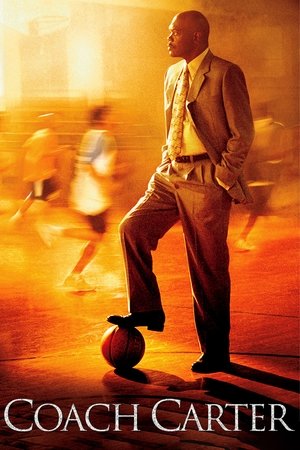
Coach Carter
When the eponymous coach (Samuel L. Jackson) arrives at Richmond High School, he inherits a disparate group of guys who play basketball as they take life - casually with little responsibility. Their grades are low and so their futures unlikely to break the cycle of poverty and lack off opportunity. He decides to try and break that by insisting that they sign contracts before they can play. These require perfect attendance, no late-coming and grade averages that will ensure they graduate. There's resistance from the team and from their parents, but thanks to a bit of help from the principal (Denise Dowse) he sticks to his guns and they have to accept his ultimatum. The remainder of the film follows his attempts to mould something cohesive from these young men as they, themselves, deal with issues that impact on their own lives. Carter's dream is not a forgone conclusion here. Though there is an element of predictability to the development of the story, his charges do not routinely conform to his grand design and as he gradually builds a functioning (and winning) team, he also realises that their academic focus is what's lacking. That's his biggest challenge. They can't make a living playing ball, but it can be a conduit to an education that can stand them in good stead in the future - and that's the real message here. As with so many people growing up in an environment devoid of opportunity, sport can prove to galvanise people. It can offer hope, introduce the benefits of team building and inter-reliance and ultimately help to prioritise for what's to come. Jackson puts in a strong effort here, and the writing also helps succinctly tell a story that Rick Gonzalez, Rob Brown and Anton Tanner also contribute well to as they represent the men who just initially want to play with little appreciation of the profound chance being offered them. It is too long, and towards the end the story does rather run out of steam, but as a real-life coming of age story it still works well.
